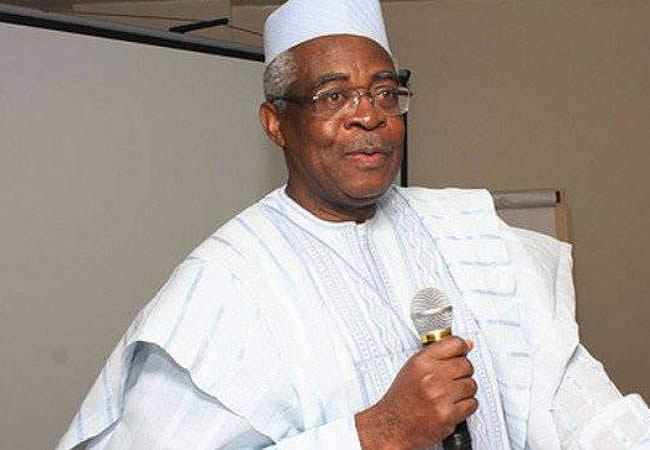Paragraph 1: The Clarion Call for Self-Defense
Retired Lieutenant General Theophilus Danjuma, former Minister of Defence, has issued a stark warning to the Nigerian populace: self-defense is no longer an option but a necessity. Speaking at a public gathering in Takum, Taraba State, Danjuma reiterated his previous pronouncements on the escalating insecurity plaguing the nation. He argued that the government’s apparent inability to effectively combat the rampant violence necessitates a shift in strategy, urging communities to take up arms and protect themselves against the relentless onslaught of bandits, terrorists, and criminal elements. This call to arms reflects a growing sentiment of frustration and disillusionment with the state’s security apparatus, highlighting the urgent need for a comprehensive reassessment of Nigeria’s security architecture.
Paragraph 2: Echoes of Unheeded Warnings
Danjuma’s recent pronouncements are not isolated incidents but rather a continuation of his consistent warnings over the past five years. He highlighted the recurring cycles of violence in Benue, Plateau, and other regions as evidence of the government’s failure to address the root causes of insecurity. The escalating death toll and displacement of communities bear tragic witness to the devastating consequences of inaction. Danjuma’s repeated warnings underscore the gravity of the situation, emphasizing the urgent need for proactive measures before the crisis spirals further out of control. His words serve as a poignant reminder that the current security challenges demand a concerted and multi-faceted approach involving both government intervention and community-based self-defense initiatives.
Paragraph 3: The Imperative of Self-Preservation
The retired general emphasized the crucial role of self-preservation in the face of escalating violence. He urged communities to recognize that relying solely on government protection is a dangerous illusion. With the security forces seemingly overwhelmed and unable to effectively combat the pervasive insecurity, citizens must assume responsibility for their own safety. This message of self-reliance, though stark, reflects the grim reality facing many communities across Nigeria. It underscores the urgent need for empowerment at the local level, enabling citizens to actively participate in securing their own lives and properties.
Paragraph 4: A Nation on the Brink
Danjuma’s pronouncements paint a bleak picture of a nation teetering on the brink of chaos. The escalating violence, coupled with the government’s perceived ineffectiveness, has created a climate of fear and uncertainty. His warnings, though unsettling, serve as a wake-up call, highlighting the urgent need for a comprehensive national security strategy. This strategy must incorporate not only strengthened law enforcement and military action but also community-based initiatives that empower local populations to defend themselves against the relentless attacks.
Paragraph 5: Beyond Self-Defense: Addressing the Root Causes
While advocating for self-defense as a necessary measure in the short term, it is crucial to acknowledge that this approach alone cannot provide a long-term solution. The root causes of insecurity, including poverty, unemployment, inequality, and weak governance, must be addressed to effectively combat the pervasive violence. Sustainable peace and security require a comprehensive approach that encompasses economic development, social justice, and effective governance. Investing in education, job creation, and conflict resolution mechanisms is essential to address the underlying factors that fuel insecurity.
Paragraph 6: A Call for Collective Action
The current security crisis in Nigeria demands a concerted effort from all stakeholders. The government must strengthen its security apparatus, improve intelligence gathering, and ensure accountability within the security forces. Simultaneously, communities must actively participate in securing their own areas, collaborating with security agencies and implementing local self-defense strategies. Civil society organizations, religious leaders, and community elders have a critical role to play in promoting peace, fostering dialogue, and mediating conflicts. A united front, involving all segments of society, is essential to overcome the multifaceted challenges facing the nation and pave the way for a more secure and prosperous future. Danjuma’s call to action, though controversial, underscores the urgent need for a paradigm shift in Nigeria’s approach to security, moving from a solely state-centric model to one that embraces community participation and addresses the root causes of violence.














